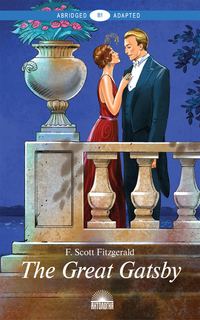The Great Gatsby. Адаптированная книга для чтения на английском языке. Уровень B1

Добавить В библиотекуАвторизуйтесь, чтобы добавить
Добавить отзывДобавить цитату
The Great Gatsby. Адаптированная книга для чтения на английском языке. Уровень B1
Вы ознакомились с фрагментом книги.
Для бесплатного чтения открыта только часть текста.
Приобретайте полный текст книги у нашего партнера:
Всего 10 форматов
Авторизация